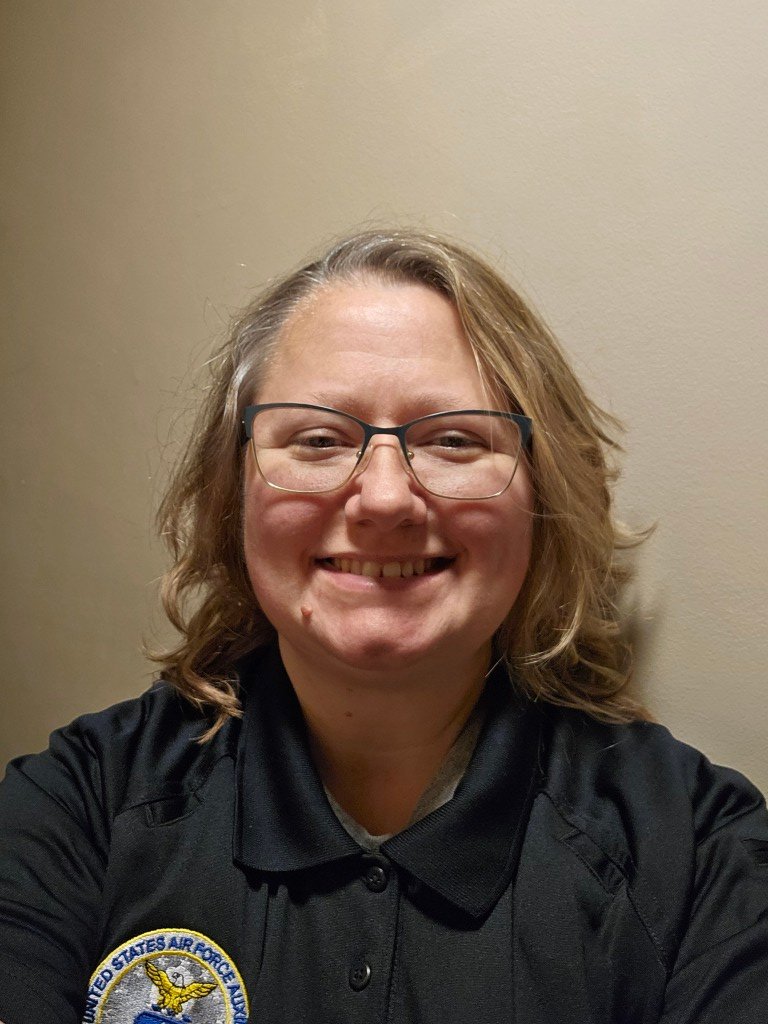Meet Second Lieutenant Tara Sutton, a finance officer with the Civil Air Patrol, whose passion for aviation and community service is shaping future leaders. Through hands-on training in search and rescue, leadership development, and exposure to career paths in aviation, science, and engineering, Civil Air Patrol provides participants with life-changing opportunities. Discover how this organization supports women in aviation, connects members to mentors, and fosters a spirit of growth, resilience, and community.
What’s your official title within Civil Air Patrol?
I am a second Lieutenant and finance officer.
How did you get involved with the Civil Air Patrol?
I got involved when my daughter started showing interest. She learned about it from her father who was a cadet when he was a teen. My daughter’s curiosity eventually got the entire family involved, and now her brother also wants to join.
How does someone join?
I attended a couple of meetings where I learned about what the Civil Air Patrol does. Anyone who is interested is welcome to attend a meeting. We are happy to introduce them to our members and show them around the buildings. Then they can sign up if they like what they see. It’s really easy.
Women can also visit Gocivilairpatrol.com for more information.
What is the training like?
We do a lot of search and rescue missions as well as using locator beacons. We traveled to the Cranberry Wilderness N28901 Site where a real plane crashed, and we gave our team directions to find the plane where volunteers were waiting at the site with fake injuries. Our team then has to stretcher them out and treat their injuries using wilderness first aid.
Part of the wilderness first aid training is making splints with what you have on hand—like sticks and a t-shirt, for example. Participants learn how to stop bleeding and how to evacuate people safely from a rough and remote area to get them to an ambulance.
We have a lot of fun with training as well. Participants attend an annual weekend camping trip where they meet members of other groups in the organization and go through training together. Our squadron has 29 senior members and about 20 cadets in the Clarksburg squadron. Morgantown has a squadron, and there’s one in Elkins as well as others throughout the state. They’re all invited to participate. It brings the whole community closer together.
Every summer we have what we call an encampment where we take 100 cadets from around the state—and sometimes a few from out of state—to Camp Dawson for an entire week where they go through a mini boot camp.
We also do PT (physical training) once a month where members are challenged to do a mile run as well as a certain number of sit-ups and push-ups. The goals are based on their age, and they must pass two of those three fitness goals to rank up as members.
We have a uniform that’s worn during promotion ceremonies, and they are inspected once a month. They also wear their ABUs which are military fatigues worn any time they are not in “dress blues.”
Do members receive technical training when they join the Civil Air Patrol?
We go through radio training and learn specific protocols for how we communicate. Calling someone on the radio starts with saying your name followed by their name, and when you’re finished speaking, you say “over” and wait for them to acknowledge you.
Search and rescue requires communication between everyone on the planes and participants working on the ground. Both groups must coordinate their efforts which can be complex. We have a Communications Liaison who talks with both the ground teams and the aircraft which requires additional training. We also cover how to provide exact locations using latitude and longitude coordinates.
Members are also taught leadership. How do they learn those skills?
They typically do volunteer service and recruiting, and they participate in events like the recent Girls In Aviation Day in Bridgeport, WV. There are a lot of opportunities where they can represent what they do and explain it to other people.
Then we have a yearly conference where we name a Cadet of the Year. This is awarded to a cadet who has made a lot of progress, shown strong leadership potential, and exhibited the core values of our organization. That individual will be recognized all over the country for the entire year.
The program also prepares participants for the military if that’s a path they want to follow. For example, we have ranks. A regular Airman is the basic rank, and then there are positions all the way up to Cadet Colonel which is the highest rank you can get within Civil Air Patrol. Each one of those ranks has specific leadership qualities built in. They also mentor each other as they move up through the ranks.
We talked about rescue missions which involve flying cadets to search and rescue missions. Do the cadets fly aircraft as well?
No, the cadets are flown in by a certified pilot and deployed from the aircraft. We also have a ground team of people who either don’t want to fly or can’t fly. The cadets cannot fly until they’re 18 years old. According to the FFA, they can get their pilot license at 16, so they can get their license to drive a car and fly a plane on the same day. However, the Civil Air Patrol still caps it at 18 as a mission pilot, though they can learn to fly and have five flights under a certified flight instructor.
What costs are associated with joining the Civil Air Patrol? Are there any grants or programs that help with costs?
We make sure anyone who wants to participate doesn’t have to worry about a financial barrier. There are scholarships available as well as financial aid programs, so the help is there if someone wants it.
Obviously, this is a great program if you’re interested in joining the military, but it’s also a great platform for teaching responsibility and getting people engaged with their community. It broadens their horizons.
What else do you want people to know about your organization?
We want our members to see the different career paths that are out there. It’s not just the Air Force and aviation. For example, we went to the Green Bank Observatory this past August. There is a lot of overlap in science and space.
Next summer we want to take our group on a private tour of the Air Force Reserve. Everyone is excited about it, so we hope to make that work.
How does the Civil Air Patrol support girls and women in their careers?
For the most part, women have only been involved with aviation for about fifty years. The shift really started in World War 2 with a specialty program for female pilots called Women’s Airforce Service Pilots which was also called WASP. Those women were pioneers, and we want to follow in their footsteps and push boundaries to make our mark on the world. We help women see a way forward and make sure to introduce them to a variety of jobs from senators to air traffic controllers to NASA engineers.
How does WV Women Work help women like those involved in Civil Air Patrol prepare for their careers?
The aviation industry always needs workers skilled in manufacturing and construction. Also, so many women can benefit from finding a good mentor for whatever path they choose to follow. I’m all about supporting women as they discover where they fit best. We are all stronger when we share our knowledge and stay connected as a community.
Interview conducted, transcribed, and written by Marlynda Arnett, Program Innovation Leader for West Virginia Women Work.

